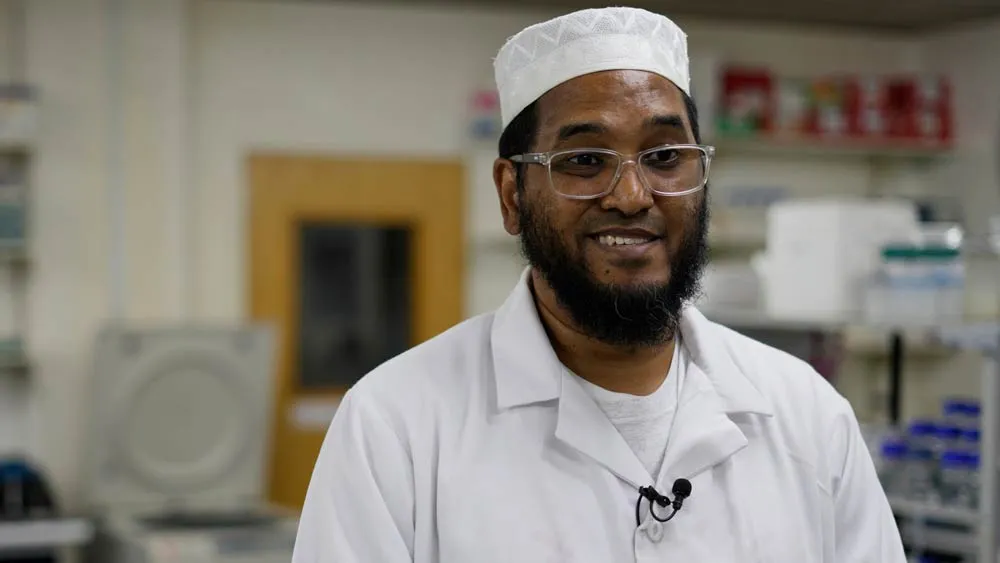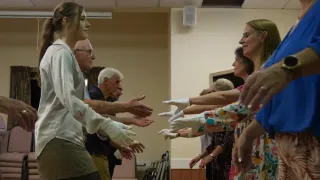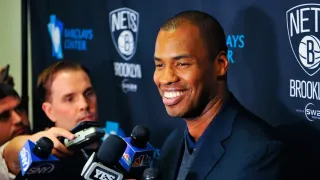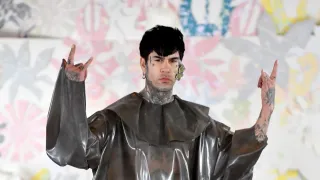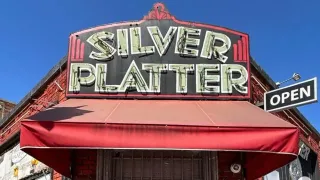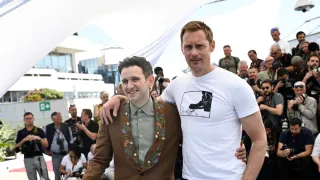May 24, 2022
Marjorie Taylor Greene Seat, 2 Democratic Primaries Among Top US House Races
Brian Slodysko READ TIME: 5 MIN.
One of the last anti-abortion Democrats in Congress is in a primary runoff in Texas to hold on to his seat.
In suburban Atlanta, two Democratic congresswomen are vying for the same House seat after Georgia's Republican-dominated Legislature tinkered with their maps.
And in northwest Georgia, far-right Rep. Marjorie Taylor Greene, a conspiracy-peddling provocateur, has a huge fundraising advantage as she faces a handful of GOP primary challengers in her Republican-leaning district.
Primary elections that will be held Tuesday in Alabama, Arkansas, Georgia, Minnesota and Texas will offer a glimpse of what the next Congress could look like, with some marquee matchups testing whether voters want to elect agents of change or a return to normal.
Here are a handful of races to follow:
THE LAST ANTI-ABORTION HOUSE DEMOCRAT
Moderate Texas Democrat Henry Cuellar has become a perennial target for progressives. But so far the anti-abortion congressman has prevailed in a series of close races in the largely Hispanic district that stretches from the Rio Grande to San Antonio.
For the second cycle in a row, 28-year-old immigration attorney and abortion rights supporter Jessica Cisneros is looking to end Cuellar's almost 20-year stint in office. In the March primary, she forced Cuellar into a runoff after coming within 1,000 votes.
Heading into the Tuesday competition, she may have a new edge after a recently leaked U.S. Supreme Court opinion draft showed the justices poised to overturn the historic 1973 Roe v. Wade decision that grants a constitutional right to abortion.
"We are watching the fall of Roe and the erosion of our fundamental rights," Cisneros said earlier this month. "The last thing we want is to hold on to a slim Democratic majority, and then have someone like Henry Cuellar who's going keep siding with Republicans."
The FBI earlier this year raided Cuellar's home in the border city of Laredo as part of an investigation related to the former Soviet Republic of Azerbaijan. Cuellar's attorney says he has been exonerated and is not the target of the investigation. But the issue is enough of a liability that Cuellar's allies have sent out direct mail ads with a mock newspaper headline proclaiming him "cleared."
Cuellar is backed by House Speaker Nancy Pelosi and others in House Democratic leadership. But he's also been hit with a $1 million wave of negative advertising, while little has been spent attacking Cisneros.
MARJORIE TAYLOR GREENE
Marjorie Taylor Greene once speculated that Jewish-controlled space lasers sparked California wildfires. She also baselessly argued that two Muslim congresswomen weren't "really official" because they didn't take their oath of office on a Bible. And she once yelled through a congressional office mail slot, challenging New York Rep. Alexandria Ocasio-Cortez to "get rid of your diaper" and "talk to the American citizens."
And that was all before voters in northwest Georgia decided to elect the fringe conservative and conspiracy theory monger to Congress in 2020.
Since then, Greene's rhetoric and provocations have only continued, culminating in Democrats taking the rare step of stripping her of her committee assignments. The opposition has only helped turn her into a conservative star and fundraising juggernaut, and GOP leadership have shown reluctance to challenge her.
Now in her first reelection campaign for a solidly red district in northwest Georgia, Greene is facing a handful of challengers, including health care consultant Jennifer Strahan, who pitched herself as a "no-nonsense conservative" alternative to Greene.
If Republicans win back the House majority in November, as history suggests they may, Greene could notch yet another victory: GOP leader Kevin McCarthy, who is in line to become House speaker, has said she won't just get her committee assignments back; she'll likely receive a promotion.
MINNESOTA 'DUMPSTER FIRE'
When Republican Rep. Jim Hagedorn died of kidney cancer in February, his widow, former Minnesota GOP chair Jennifer Carnahan, said her husband's wish was for her to succeed him and represent southern Minnesota in Congress.
The race hasn't shaped up that way.
Even before announcing her bid, Carnahan's friendship with a GOP donor who was federally indicted for sex-trafficking minors sparked a firestorm. Then a recording surfaced last year in which she said, "Jim's gonna be dead in two years. So be it." Last week, she was sued by her deceased husband's family as they attempted to recoup money they loaned him for cancer treatment, which they say she was supposed to pay back to them.
The drama, which local GOP officials have likened to a "dumpster fire," has allowed two other candidates to surge ahead.
Brad Finstad, a former state lawmaker and USDA official, has secured much of the party establishment's support. Americans for Prosperity – an organization established by billionaire industrialists, the Koch Brothers – and the Republican group American Dream Federal Action have collectively spent $1.4 million on ads supporting him.
State Rep. Jeremy Munson, meanwhile, is running as an outsider who is "100% Pro-Life. 100% Pro-Gun. 100% Conservative." Munson, who proposed legislation to let Minnesota counties secede and join border states, has the backing of the hard-right House Freedom Caucus.
Former Hormel CEO Jeff Ettinger is seeking the Democratic nomination for the solid Republican district.
MEMBER ON MEMBER PRIMARY
After the 2020 census, Georgia's Republican-dominated Legislature redrew the boundaries of Democratic Rep. Lucy McBath's suburban Atlanta district, transforming it into a GOP stronghold. They also redrew another Atlanta-area swing seat, making Democratic Rep. Carolyn Bourdeux's district solidly Democratic.
So McBath, a nationally renowned gun-safety advocate first elected in 2018, went district shopping – and decided to challenge Bourdeaux, a college professor in her first term. Now, with millions of dollars in spending by outside groups supporting her, McBath has a huge advantage heading into Tuesday's primary.
McBath has run on her compelling personal story. She's a Black woman whose son was killed by a white man during a dispute over stereo volume in 2012. Since then, she's called herself a "mother on a mission" and has pledged to pass gun safety legislation through Congress, though there is scant hope of that because of lockstep Republican opposition.
While the two share many of the same policy goals, Bourdeaux takes umbrage with McBath's district swap, subtlety hinting that her colleague-turned-rival is a carpetbagger.
She has also sharply criticized spending by cryptocurrency billionaire Sam Bankman-Fried, who has poured millions of dollars into primary races across the U.S. this year, including $2 million spent backing McBath. The motive, Bourdeaux argues, is to buy support from Congress at a time when the industry faces the prospect of federal regulation for the first time. McBath has ignored calls to renounce the financial help.
